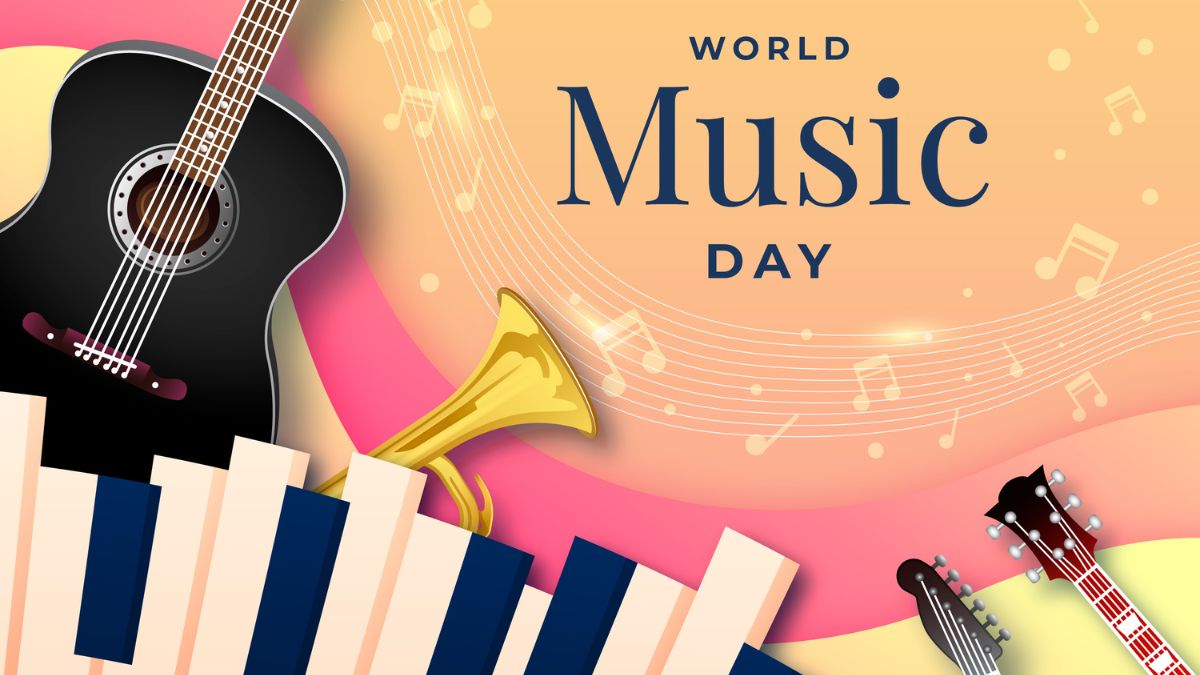Introduction
“The World of Music” is a vibrant exploration of the diverse genres and cultures that make up the global music scene. From traditional folk melodies to contemporary pop hits, music transcends boundaries, connects people, and expresses the human experience. This article invites you to embark on a captivating journey through the world of music, celebrating its rich tapestry of sounds, rhythms, and emotions.
The Power of Music
- Universal Language: Music is often referred to as the universal language, as it has the ability to communicate emotions and ideas across cultural barriers. Regardless of the language spoken, music has the power to evoke emotions, bring people together, and create a sense of unity.
- Emotional Expression: Music serves as a powerful medium for emotional expression. Whether it’s the joyous melodies of celebratory songs, the introspective tunes of melancholy ballads, or the energetic beats of dance music, music has the capacity to resonate with our deepest emotions and touch our souls.
- Cultural Identity: Music plays a pivotal role in preserving and showcasing cultural identities. Traditional music genres, passed down through generations, reflect the unique traditions, stories, and values of different cultures. From the rhythmic beats of African drumming to the soulful melodies of Indian classical music, each genre carries the essence of its cultural heritage.
Exploring Musical Genres
- Classical Music: Classical music represents a timeless genre that encompasses the works of legendary composers such as Bach, Mozart, and Beethoven. Known for its intricate compositions and orchestral arrangements, classical music continues to inspire and captivate audiences worldwide.
- Pop Music: Pop music is a genre characterized by its catchy melodies, relatable lyrics, and widespread popularity. It reflects the contemporary music trends and has given rise to iconic artists and chart-topping hits that dominate the mainstream music scene.
- Rock Music: Rock music emerged in the mid-20th century and quickly gained popularity for its energetic guitar-driven sound. From the pioneering sounds of Elvis Presley and The Beatles to the rebellious spirit of bands like Nirvana and The Rolling Stones, rock music has left an indelible mark on music history.
- Jazz Music: Jazz music, born in the late 19th century, is known for its improvisation, syncopated rhythms, and complex harmonies. With its roots in African American culture, jazz has evolved into various subgenres, from swing and bebop to fusion and smooth jazz, making it a beloved genre worldwide.
- Hip-Hop Music: Originating in African American and Afro-Caribbean communities, hip-hop music combines rhythmic beats with spoken word poetry. It has become a cultural movement, expressing social commentary, personal experiences, and artistic creativity.
Music Around the World
- Latin Music: Latin music encompasses a variety of styles, including salsa, reggaeton, bachata, and tango. It is known for its infectious rhythms, passionate vocals, and vibrant dance culture. Latin music has gained global popularity, infusing mainstream music with its lively and sensual sounds.
- Asian Music: Asian music is incredibly diverse, with each country boasting its unique musical traditions. From the meditative melodies of traditional Chinese music to the energetic beats of K-pop and the spiritual chants of Indian classical music, Asian music showcases the richness of the continent’s cultural heritage.
- African Music: African music is deeply rooted in tradition and has influenced various genres worldwide. With its rhythmic drumming, soulful vocals, and mesmerizing melodies, African music captivates listeners and celebrates the continent’s vibrant cultures.
Music and Technology
Technology has transformed the music industry in numerous ways:
- Recording and Production: Advancements in recording technology have made it easier for artists to capture their music with high-quality sound. Digital recording, editing software, and virtual instruments have revolutionized the way music is produced and distributed.
- Music Streaming: The rise of music streaming platforms has changed the way we consume music. Services like Spotify, Apple Music, and YouTube Music offer vast libraries of songs that can be accessed anytime, anywhere, making music more accessible than ever before.
- Collaboration and Global Reach: Technology has facilitated collaboration among artists from different parts of the world. Musicians can now work together remotely, exchanging ideas and creating music across borders. Social media platforms also allow artists to connect with their fans on a global scale, fostering a sense of community and support.
Conclusion
“The World of Music” celebrates the beauty and diversity of musical genres and cultures from around the globe. From classical symphonies to catchy pop tunes, from the rhythmic beats of African drumming to the soul-stirring melodies of Asian music, music has the power to inspire, unite, and uplift us. It transcends language barriers, reflects our cultural identities, and connects us to our shared humanity. So, let us immerse ourselves in the enchanting world of music and embrace its universal language.
============================================
